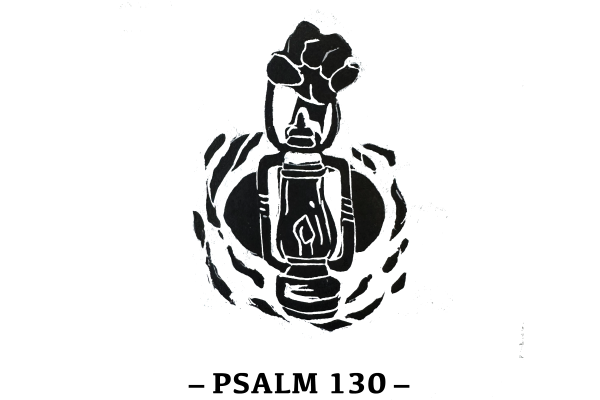
Fourth Sunday of Advent: Waiting for the Dawn
Out of the depths I cry to you, Lord;
Lord, hear my voice.
Let your ears be attentive
to my cry for mercy.
If you, Lord, kept a record of sins,
Lord, who could stand?
But with you there is forgiveness,
so that we can, with reverence, serve you.
I wait for the Lord, my whole being waits,
and in his word I put my hope.
I wait for the Lord
more than watchmen wait for the morning,
more than watchmen wait for the morning.
Israel, put your hope in the Lord,
for with the Lord is unfailing love
and with him is full redemption.
He himself will redeem Israel
from all their sins.
—Psalm 130
I’m good at waiting—in the worst possible way.
In my family, we call it “pre-worrying.” Therapists call it “anticipatory anxiety.” But whatever you call it—I’m an expert.
The basic idea is that whenever something potentially stressful or scary is just over the horizon, I expend a lot of energy imagining everything that could go wrong. And then—this is the especially exhausting part—I pre-feel the emotions that I might experience when those bad things happen. For example:
My youngest is about to go to a high school where she doesn’t know anyone? Dread and regret. It’s going to be a disaster. She won’t make any friends and the school won’t be a good fit. What were we thinking?
I’ve got a new class of English students? Embarrassment and insecurity. Remember that one time you ran out of material and how awkward it was? That’s going to happen again, probably every week. They’d be better off with another teacher.
If not endless, the possibilities are vast. Dentist appointments, cross-country flights, hard conversations. Parties, mammograms, paying for college. Lions and tigers and bears—oh my!
There is so much in life we cannot control, and pre-worrying is one of those coping strategies that can give us the illusion of power over the future. But as I’ve moved through decades of adulthood, I’ve learned that—like all idols—my illusions of control cost me more than they give.
Pre-worrying chips away at my faith and my peace of mind. It stresses out my family and leaves me with less energy to care for them. And it distracts me from the productive postures of waiting, prayer, and action that are my work in this world.
So here on the final Sunday of Advent, as our waiting for Christmas is almost at an end, I’d like to remind us of a gift we’ve already been given. In Psalm 130, we are presented with an honest and hope-filled posture of waiting—one that can also be ours.
It begins with honesty about the situation, and all of our situations. Out of the depths I cry to you. The psalmist knows that life is full of danger and potential danger. But instead of turning to his favorite coping mechanism, he turns to the Lord.
And the psalm is also honest about the psalmist. This is a cry for mercy and forgiveness. If you, Lord, kept a record of sins, Lord, who could stand? The implied answer is, “Not me!” And it is God’s mercy and forgiveness that the psalmist is waiting for—with both hope and great longing—more than the watchman waits for the morning.
Why? Because in receiving this mercy and forgiveness, the psalmist receives a relationship that will carry him through the ups and downs of a life that refuses to be tamed. God’s mercy draws us near to God. And in the end, this is enough.
Friends, whether we anticipate Christmas morning or a doctor’s diagnosis, waiting is not optional. So we can pre-worry. Sometimes we can prepare. But it’s never enough. Because whatever the object of our waiting, the bigger truth is that we are all waiting, every single day, for God’s mercy.
Put your hope in the Lord, for with the Lord is unfailing love and with him is full redemption.
And as we receive what God freely gives, we can rest like a watchman as a new day dawns.
—Jennifer Pelling is a writer and editor with the CCO’s Marketing & Communications Team. She is managing editor of the CCO Advent Devotional.
Lord, hear my voice.
Let your ears be attentive
to my cry for mercy.
If you, Lord, kept a record of sins,
Lord, who could stand?
But with you there is forgiveness,
so that we can, with reverence, serve you.
I wait for the Lord, my whole being waits,
and in his word I put my hope.
I wait for the Lord
more than watchmen wait for the morning,
more than watchmen wait for the morning.
Israel, put your hope in the Lord,
for with the Lord is unfailing love
and with him is full redemption.
He himself will redeem Israel
from all their sins.
—Psalm 130
I’m good at waiting—in the worst possible way.
In my family, we call it “pre-worrying.” Therapists call it “anticipatory anxiety.” But whatever you call it—I’m an expert.
The basic idea is that whenever something potentially stressful or scary is just over the horizon, I expend a lot of energy imagining everything that could go wrong. And then—this is the especially exhausting part—I pre-feel the emotions that I might experience when those bad things happen. For example:
My youngest is about to go to a high school where she doesn’t know anyone? Dread and regret. It’s going to be a disaster. She won’t make any friends and the school won’t be a good fit. What were we thinking?
I’ve got a new class of English students? Embarrassment and insecurity. Remember that one time you ran out of material and how awkward it was? That’s going to happen again, probably every week. They’d be better off with another teacher.
If not endless, the possibilities are vast. Dentist appointments, cross-country flights, hard conversations. Parties, mammograms, paying for college. Lions and tigers and bears—oh my!
There is so much in life we cannot control, and pre-worrying is one of those coping strategies that can give us the illusion of power over the future. But as I’ve moved through decades of adulthood, I’ve learned that—like all idols—my illusions of control cost me more than they give.
Pre-worrying chips away at my faith and my peace of mind. It stresses out my family and leaves me with less energy to care for them. And it distracts me from the productive postures of waiting, prayer, and action that are my work in this world.
So here on the final Sunday of Advent, as our waiting for Christmas is almost at an end, I’d like to remind us of a gift we’ve already been given. In Psalm 130, we are presented with an honest and hope-filled posture of waiting—one that can also be ours.
It begins with honesty about the situation, and all of our situations. Out of the depths I cry to you. The psalmist knows that life is full of danger and potential danger. But instead of turning to his favorite coping mechanism, he turns to the Lord.
And the psalm is also honest about the psalmist. This is a cry for mercy and forgiveness. If you, Lord, kept a record of sins, Lord, who could stand? The implied answer is, “Not me!” And it is God’s mercy and forgiveness that the psalmist is waiting for—with both hope and great longing—more than the watchman waits for the morning.
Why? Because in receiving this mercy and forgiveness, the psalmist receives a relationship that will carry him through the ups and downs of a life that refuses to be tamed. God’s mercy draws us near to God. And in the end, this is enough.
Friends, whether we anticipate Christmas morning or a doctor’s diagnosis, waiting is not optional. So we can pre-worry. Sometimes we can prepare. But it’s never enough. Because whatever the object of our waiting, the bigger truth is that we are all waiting, every single day, for God’s mercy.
Put your hope in the Lord, for with the Lord is unfailing love and with him is full redemption.
And as we receive what God freely gives, we can rest like a watchman as a new day dawns.
—Jennifer Pelling is a writer and editor with the CCO’s Marketing & Communications Team. She is managing editor of the CCO Advent Devotional.
